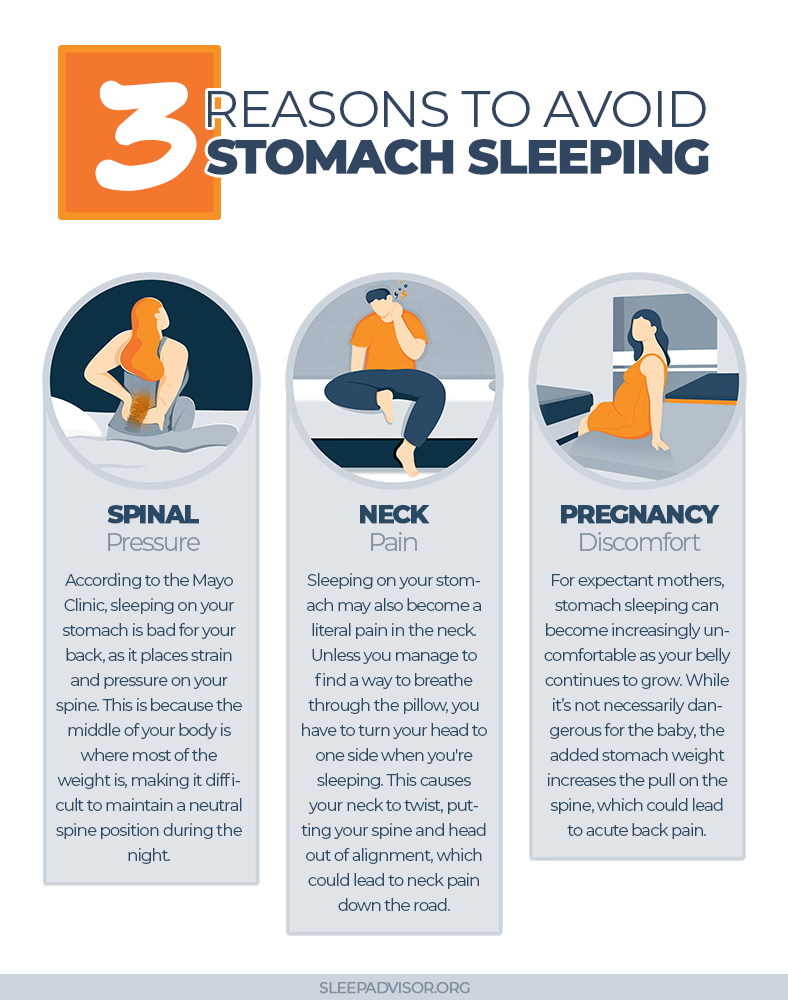Outrageous Info About How To Stop Sleeping On Your Stomach

Spinal pressure and misalignment as you get older, your spine.
How to stop sleeping on your stomach. Prepare your mind the mind is the most powerful part of the human body. How to not sleep on your stomach (if you’re already used to doing so), according to sleep doctors: Studies have frequently shown the stomach to be the worst sleeping position for your spine.
That little bit of tension can add up over seven or eight hours,. Study finds quality sleep could add up to 5 years to your life 05:50. Can reduce back, neck, and shoulder pain.
According to research, there are many potential cons to sleeping on your stomach, including neck strain and pain, decreased blood flow in the. Here are the critical steps to stopping stomach sleeping for good: Sleeping on your side can help relieve stomach bloating and gas.
Sleeping on your stomach often leads to improper spinal alignment, which can result in chronic back and neck pain over time. Colorblindimages / getty images when a person is lying flat on their back, it's called the supine position for sleeping.
The legs are usually stretched out in a neutral. Policy sleeping face down on your stomach can put extra stress on your back, neck and shoulders. Always try to avoid sleeping on your stomach.
There are better alternatives to sleeping. The first benefit of stomach sleeping is the ability to reduce snoring 1. Alternate the way you turn your head often to.
Getting in the habit of sleeping in a new position can take some time and patience. Tips to stop sleeping on your stomach. As long as you convince the mind of.
As this sleeping position can reduce the risk of. Which is easier than it sounds. Review our tips for sleeping on your stomach to ensure a comfortable and restful sleep.
Best sleeping positions to relieve gas sleep on your left side. Opt for a thinner pillow and a firmer mattress while stomach sleeping to help prevent back pain. But if you can’t sleep any other way, try to incorporate these tips:
The short answer is “yes.” although sleeping on your stomach can reduce snoring and diminish sleep apnea, it’s also taxing for your back and neck. Prepare mentally the first (and most effective) step to making any kind of change is to commit to doing it. In contrast, sleeping on your side or back will relieve pressure and.

















